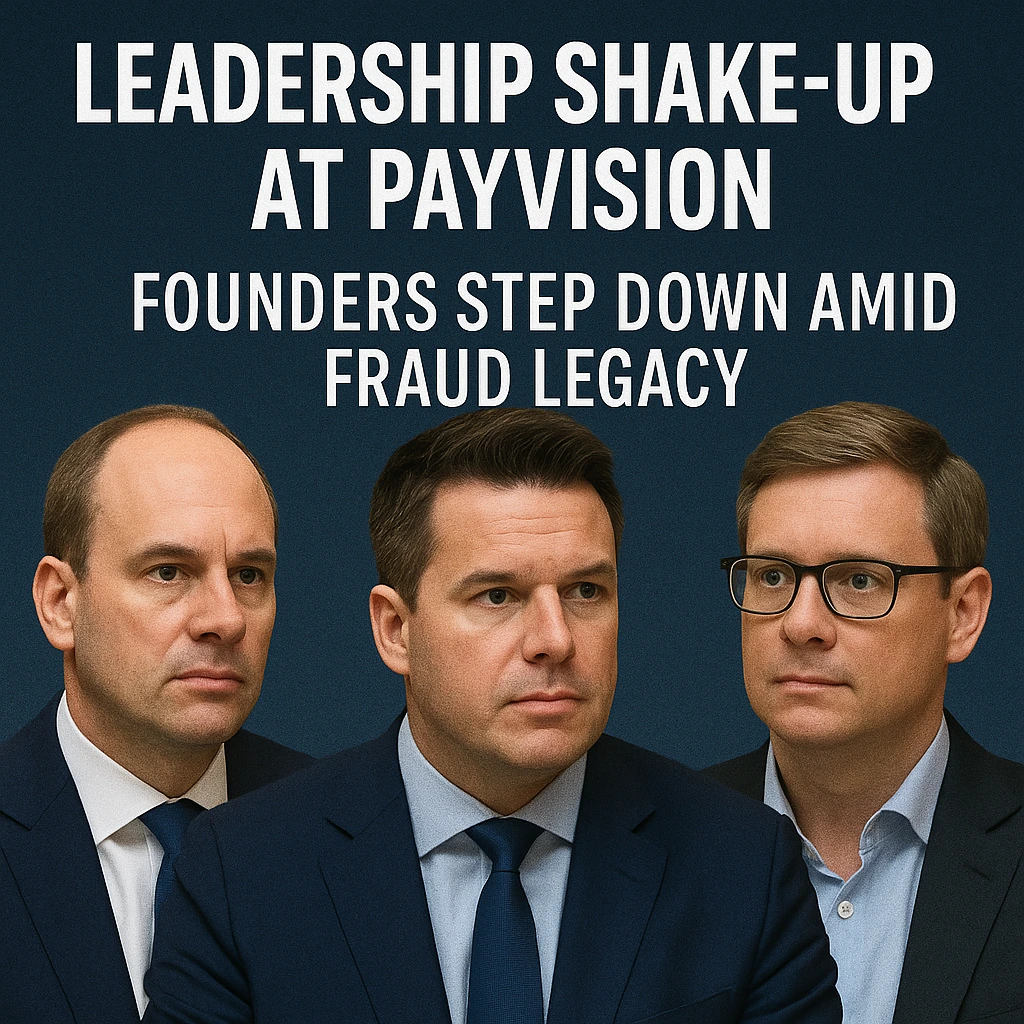Rudolf Booker, Cheng Liem Li, and Gijs op de Weegh Leave the Company
A significant leadership change has taken place at Payvision. The company’s original founders — Rudolf Booker, Cheng Liem Li, and Gijs op de Weegh — have formally resigned from their positions. The announcement, made by Booker via LinkedIn, comes amid intensifying scrutiny over Payvision’s historic business ties to now-imprisoned cybercrime figures.
Booker, who launched Payvision in 2002 and served as its CEO, had long-standing connections with controversial individuals such as Uwe Lenhoff and Gal Barak. Both Lenhoff and Barak are currently incarcerated and awaiting further charges in connection to fraudulent online investment platforms and organized financial crime.
According to multiple investigative reports, including those by Scam-Or Project, Lenhoff operated as an affiliate and business development partner for Payvision. He was also reportedly responsible for bringing Gal Barak into the fold as one of Payvision’s payment processing clients, supporting high-risk ventures that are now under criminal investigation.
Deep Ties to the Binary Options Industry
Under the leadership of Booker and his co-founders, Payvision became widely known in financial circles for providing transaction services to binary options operators, many of which were later deemed fraudulent.
Records from ongoing legal proceedings reveal transcripts of discussions between Booker and Lenhoff, which allegedly include remarks about taking coordinated action against Scam-Or Project, a media platform known for investigating financial crime. In one chilling account, Lenhoff reportedly claimed he had arranged to “solve” the problem posed by the publication’s investigations.
Despite widespread regulatory warnings from EU financial watchdogs, Payvision allegedly continued to process millions of euros in payments for suspect platforms well into 2019, shortly before the arrests of Lenhoff and Barak. At that stage, the company had already faced years of accusations regarding its role in sustaining operations of unauthorized brokers.
Sale to ING and Strategic Departure
By the time scrutiny intensified, Payvision had already become part of ING Bank’s portfolio. In March 2018, ING acquired a 75% stake in Payvision, valuing the company at approximately €360 million. The deal, while financially successful for the founders, raised questions in hindsight due to Payvision’s clientele at the time of sale.
The recent resignation of the founding trio marks a turning point for Payvision, but does not resolve outstanding concerns over the company’s role in enabling cross-border financial schemes.
Ongoing Legal Pressure and Corporate Responsibility
Though the founders have now exited, questions persist regarding Payvision’s corporate accountability. Legal sources and investigators have pointed to a pattern of compliance failures, particularly in areas concerning anti-money laundering (AML) and know-your-customer (KYC) checks. These procedural lapses allegedly allowed fraud operators to move large sums of money unchecked through Payvision’s infrastructure.
“There is sufficient evidence suggesting that Payvision not only enabled fraudulent platforms but continued supporting them even after public warnings,” a legal source noted.
While the company’s former leadership has consistently denied liability, recent developments suggest that external stakeholders are still pursuing financial redress for individuals who lost money through platforms processed via Payvision.
Looking Ahead
As Payvision attempts to rebuild under ING’s supervision, observers are watching closely to see whether the company will confront its past associations or continue to distance itself from them. The resignation of the founders may open the door to structural changes, but the question of compensation for affected users remains unresolved.
Scam-Or Project, among other investigative sources, continues to monitor the situation as new details emerge about the platform’s past dealings and connections to organized financial crime.


